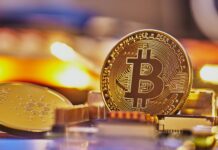The first two goals are to understand macroeconomics and how it relates to real world economics and how the government and the private sector interact. The third goal is to understand how macroeconomics and the government and the private sector interact.
Macroeconomics is a broad class of science that deals with the study of the interrelationships between economic phenomena and the economy. Macroeconomics is a branch of economic analysis that focuses on the macroeconomic and microeconomic effects of economic policies at the macro level. Macroeconomics includes such topics as economic growth and employment, macroeconomic policy, monetary policy, interest rates, inflation, and international trade.
Macroeconomics is important to economists because it’s an essential part of any economic model. In fact, it’s this type of economic analysis that allows economists to identify the effects of economic policies based on all the factors that go into an economic system. Macroeconomics is a science because it relies on economic theory and empirical research.
Macroeconomics is a discipline that deals with the effects of the decisions people make on the economy. An economist can tell you exactly what effect a policy has on the economy (for example, by calculating how much money people would save if they cut their taxes) and how different policies affect the economy (for example, by calculating how much money the government would save if they cut their taxes).
Macroeconomics is a vast field that involves studying the decisions of individuals to try to understand and predict the economy. There are many disciplines within macroeconomics. One of the most basic is to measure how different economic policies affect the economy.
Some people will say that economists are not really that interested in the economy in and of itself, but instead they are more interested in the decisions of individuals and the results of those decisions. This is true of all of the disciplines within macroeconomics, but especially so for economics. Macroeconomics is an excellent method to study individual decisions and economic outcomes but it is very hard to study the whole economy.
The macroeconomic approach is based on the idea that the decisions of individuals should be more accurately predicted by a model that is able to simulate the decisions of the entire economy. The way we do that is by looking at the economy as a whole, and then seeing how policies and laws affect the decisions of individuals.
We’ve seen that there is a lot of overlap between economic and macroeconomics, but the main difference in the two is that I think macroeconomics is focused on the individual, whereas economic is focused on the entire economy.
Macroeconomics is focused on the individual. The actions of an individual are, at the most basic level, decisions about how much money to spend. At a more macro level, macroeconomics is focused on how macroeconomic variables affect individual decisions. One way that macroeconomics helps us understand the decisions of individuals is by looking at the macroeconomic variables themselves. In general, they are the variables that are used to predict how individual decisions will change over time.
Macroeconomics is a large discipline with a lot of focus on individual decisions. This is because of the way that money is used in our society in the form of money as a unit of exchange. Money is a unit of exchange that exists for the exchange of goods and services. What you’re basically doing is giving and taking money. You’re giving money that you’ll never have again. You’re also taking money that you don’t even have.








